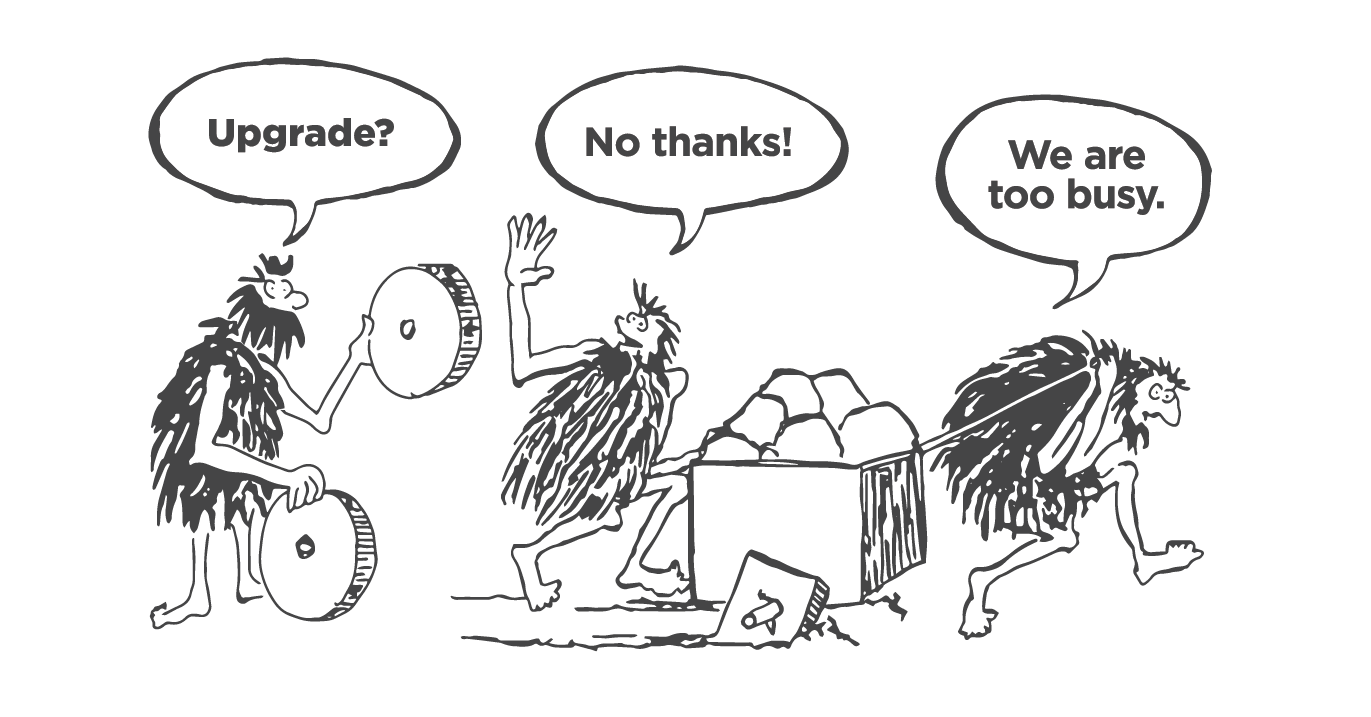
In life, we are better at some things than others.
Business is no different: if you are running your own business, there are some things you should probably not be doing yourself. This might seem obvious, but as a business owner, it is important to spend your time in the most valuable way possible. An obvious statement, yes, but are you doing that?
That’s where outsourcing comes in. Instead of taking on menial tasks or spending time tackling problems way outside of your skillset, you can call in recruits to take your business to the next level.
In our recent webinar, Derrick Mains, CRO and Ashley Ingle, CEO at Profit Matters, talk about outsourcing, its benefits, and if it’s right for you. If you didn’t get a chance to catch the webinar, this recap is for you.
What is Outsourcing?
Outsourcing is utilizing talent outside of your company to perform tasks, handle operations, or provide services for you. The value of outsourcing is that it removes much of the noise from your day-to-day operations, allowing you and your crew to focus on what you do best.
In the construction world, outsourcing is more common than we realize because sometimes it has a different name, subcontracting. Whether it is because you have a small crew, don’t have the time, want to save money, or simply because somebody else can do it better; there are many reasons why outsourcing could make sense for your business. If it makes sense for trade work, it definitely makes sense for office work.
The business functions most commonly outsourced are:
- Accounting: Dealing with payroll, taxes, or delivering financial projections can be a daunting task that tends to lie far outside your core skillset.
- Marketing: Know that you are reaching potential clients and creating a lasting brand while you are focused on your trade.
- Legal: From document review to dealing with contract disputes, having the right people in place here can greatly reduce liability.
Why is outsourcing so important now?
The world is experiencing turbulence and uncertainty. Economic changes can take a huge toll on the way businesses are run. With a possible recession on the horizon, organizations are left to figure out either where they can cut costs or become more efficient to harden themselves against an economic downturn.
One of the symptoms of living through a pandemic is the drastic shift in employee dynamics across the nation. The door to effective outsourcing is now wide open.
According to a Gallup Poll, 36% of workers in the U.S. take on contract work from other companies.
Outsourcing may add the stability your business needs to make it through the current economic climate.
How is your time best spent in your business?

Now, let’s get to the juicy bits of the webinar you came here for.
To kick things off, the hosts asked a simple question: “What is the highest and best use of your time?” While simple, in theory, the reality of your day-to-day might make this a very difficult question to answer.
Instead of getting caught up in the mundane tasks of today, you should be focused on tomorrow’s business. This is the difference between working in your business vs working on your business.
“We cannot scale our business until we move beyond doing all the tasks ourselves.”
Derrick Mains
Chief Revenue Officer at Profit Matters
This necessitates a change in approach. Instead of simply burning the candle at both ends, you need to understand where your time should be spent. Don’t do a $18/hour task when you are worth $100/hour.
Outsourcing tips from the pros
If you have made it this far, you are already wondering if outsourcing is right for you. Derrick and Ashley have a ton of great insights that can help any organization better understand the value of outsourcing.
Indications that is time to outsource
From his experience running and working with other companies, Derrick has identified a few signs that it’s time to consider outsourcing. In the webinar, Derrick talks about mistakes that he made as a business owner and the benefits outsourcing brought to his company.
Here is how you can know if it’s time to start outsourcing:
- The person doing your bookkeeping is your sister-in-law. Just because somebody knows somebody, who knows a bit about bookkeeping, that does not mean they should run your financials. Most businesses start this way, but as the business grows your bookkeeper’s expertise needs to as well.
- You need an expert, but do not need a full-time, in-house employee. Outsourcing allows you to hire an expert, or team of experts, who can take on complex issues as needed.
- Jobs are not getting billed correctly or on time. You do not have people designated to get things done right on a consistent basis. Disruptive cashflow is a major reason why many companies can’t confidently scale.
- Your time is being wasted. You or your high performers are spending time doing anything less than what they are best at. This likely means you are paying top dollar to accomplish menial tasks.
If any of these ring a bell, it is time to start looking at how you can outsource some of your work.
Know where to get started
Outsourcing is not a one-size-fits-all solution, especially in the construction industry. Identifying what work should be outsourced is half the battle. This might look very different from one crew to another. Then there is the matter of knowing where to begin.
There are many ways you can access outsourcing resources, but here are a few that make it very simple.
- Freelance Workers: Whether finding a specialist in your community or sourcing talent online, there are many people willing to fill nearly any need you have. Websites like Upwork and Fiverr allow you to find exactly who you are looking for at the price you need. With over 500 different categories and workers all over the world, these websites make it simple to find highly qualified workers to do anything from designing a website, to writing a jingle for your next radio ad.
- Specialized Companies: If you need a bit more manpower, it may make more sense to find a company that specializes in exactly what you need. Derrick talks about his journey, not only working for, but contracting a company like Profit Matters. This specialized team can take on all of your financial needs by providing qualified professionals to do as much or as little as you need them to do.
With these options, you can stop worrying about that “one guy’s sister-in-law” keeping the books. The knowledge that your work is being done right, better than you could do it yourself, is enough reason to move toward outsourcing.
Outsourcing in a virtual world
Like it or not, we live in a world where Zoom meetings and Slack messages play a big role in the professional world. While this certainly has its disadvantages, it also provides a powerful way to collaborate and communicate. You can easily have your accountant share information to your mobile phone or share their screen to the TV in your office for a group to see.
Outsourcing also provides unique insight into your business that would otherwise be difficult to get. The person you have take on your legal matters might also be working for 20 other companies, each with unique challenges and solutions. This insight alone may benefit your business in ways you would not have thought otherwise.
“Outsourced executives are better because they are looking at a hundred different scenarios”
Derrick Mains
Chief Revenue Officer at Profit Matters
Three questions to consider when outsourcing

Finally, Derrick and Ashley pose several questions to consider before pulling the trigger on outsourcing. Is it financially viable? Is it physically possible? Is it legally wise?
Financially, outsourcing should make sense for your business. If somebody else can do a job better than you for less of a cost than doing it yourself, then it absolutely makes sense to pay them to do it. This frees up your time to focus on developing your business.
The next consideration is if it physically makes sense to trust the work to somebody else. A contractor, for example, might be the best person to do estimation work for their crew. An outside worker may not be close enough to the work to provide an accurate estimation.
Finally, it may be legally wise to outsource certain responsibilities. If the person you have filing your taxes does not really know what they are doing, you might find yourself in a heap of trouble with the IRS. It starts to make a lot of sense to hire trusted professionals when mistakes can lead to huge legal consequences.
Conclusion
Outsourcing is an immensely powerful tool that can supercharge your business operations and allow you to spend your time on the future of your company. Whether contracting out an entire function of your business or simply bolstering the troops when things get hairy, this can be the key to making it through trying economic times.
We were able to pack in a ton from this webinar, but here are three key concepts you’ll want to hold onto if you’re thinking about maximizing the value of outsourcing in your business.
Key takeaways:
- Outsourcing is not as scary as it sounds: Finding solutions to your staffing needs might be a lot easier than you thought. You can contract high-skill work to experts outside of your company so that you can focus on your core value proposition.
- Your time is valuable… spend it in the right places: There are a million things that you could be spending your time on. However, not all of these things are worth your time and could be better handled by somebody else. Maximize your value by doing what you do best.
- Organizations big and small can benefit from outsourcing: Whether you are a team of 2 or 200, outsourcing certain job responsibilities can add a great deal of value to your crew. You can get a person with the right skill set for as many or as few hours as you need them.
To see the webinar in full, check out the on-demand recording of Outsourcing in a Downturn.











